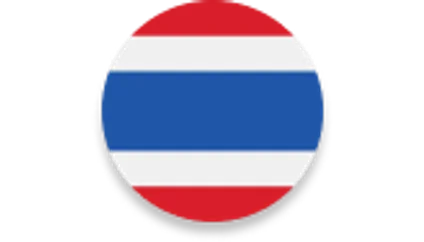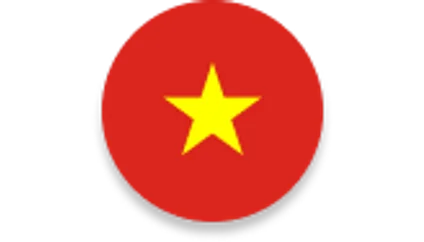Pricing Transparency in the Recycled Plastics Supply Chain in India, Indonesia, Thailand, and Viet Nam


Recycled plastics markets in India and Southeast Asia face multiple demand- and supply-linked bottlenecks along the value chain, including a lack of transparency in the pricing of plastic waste feedstock and recycled plastics.
This opacity results in fluctuating demand and supply, poor capacity utilization at recycling facilities, and, ultimately, challenges for brand owners to meet commitments on using recycled content in plastic packaging. Data on prices is critical for strategic planning at all levels. In the absence of pricing data, brands and other buyers of recycled plastics set targets that are out of sync with market realities.
The report “Pricing Transparency in the Recycled Plastics Supply Chain in India, Indonesia, Thailand, and Viet Nam” and the accompanying Recycled Plastics Policy and Pricing Tool aim to address this issue. The resources available on this page focus on the domestic plastic recycling pricing dynamics in India, Indonesia, Thailand, and Viet Nam. By providing comprehensive insights, we enable stakeholders across the value chain to better comprehend the addressable market opportunity and make more informed decisions to drive positive change in the recovery and recycling sector.



Read the Insights
“Pricing Transparency in the Recycled Plastics Supply Chain in India, Indonesia, Thailand, and Viet Nam” provides insights on pricing in the recycled plastics value chains in India, Indonesia, Thailand, and Viet Nam, and sets the context for the policy interventions that have been selected for modeling through the tool.
Learn more about the prices and volumes of recycled polymers traded by different actors in the four geographies, the distribution of profits across the value chains, and the modeled impacts of policy interventions on the volumes, market share, and prices of recycled polymers.
Recycled Plastics Policy and Pricing Tool
The Circulate Initiative’s Recycled Plastics Policy and Pricing Tool allows users to estimate the impact of different policy interventions on the output volumes, market share, and prices of recycled plastic polymers. The tool also indicates the potential impact of policy interventions on the profits of the value chain participants.
This tool has been developed with the expectation that these policies will result in an increased supply of recycled plastics. The results of the modeling should be read together with the findings from the report “Pricing Transparency in the Recycled Plastics Supply Chain in India, Indonesia, Thailand, and Viet Nam.”
Scope of the Study

Geographies
- India
- Indonesia
- Thailand
- VietNam

Polymers
- rPET
- rHDPE
- rLDPE
- rPP

Policies
- Extended Producer Responsibility (EPR)
- Implementation of a Deposit Return System (DRS)
- Minimum Recycled Content Targets
- Formalization of the Collection System
- Taxes on Virgin Polymers
*Please note that data is not available for all polymers or all policies for all countries.
Who this Tool is for

Recycled Plastics Value Chain Actors
Collectors, aggregators, and recyclers can assess the impact of policies on prices and volumes of recycled plastics.
This information will allow for better planning and target-setting by collectors, aggregators,
and recyclers.

Buyers of Recycled Plastics
Through understanding the impact of policies on recycled polymers, buyers of recycled plastics can make informed decisions around incorporating recycled materials in their products.
They can set more realistic targets for procuring recycled content, and the budget allocated for the purchase of recycled material.

Investors
The tool helps investors to assess the financial viability of potential investments in the recycled plastics value chain, and to identify profitable opportunities in the sector.
The modeling aspect of the tool allows investors to anticipate the impact of emerging policies on their investments.

Policy-Makers
Policy-makers can use the tool to model the impact of the policy interventions on the volumes, share, and prices of recycled plastic polymers.
This will support informed policy planning to drive positive change
in the sector.
The following policy simulations are available for each country:
*Please note that data is not available for all polymers or all policies for all countries.
POLICY INTERVENTION 1
POLICY INTERVENTION 2
POLICY INTERVENTION 3

INDIA
- Extended Producer Responsibility
- Minimum Recycled Content Targets
- Implementation of a Deposit Return Scheme

INDONESIA
- Extended Producer Responsibility
- Minimum Recycled Content Targets
- Implementation of a Deposit Return Scheme

THAILAND
- Extended Producer Responsibility
- Taxes on Virgin Polymers
- Formalization of the Collection System

VIET NAM
- Extended Producer Responsibility
- Taxes on Virgin Polymers
- Formalization of the Collection System

INDIA
POLICY INTERVENTION 1
Extended Producer Responsibility
POLICY INTERVENTION 2
Minimum Recycled Content Targets
POLICY INTERVENTION 3
Implementation of a Deposit Return Scheme

INDONESIA
POLICY INTERVENTION 1
Extended Producer Responsibility
POLICY INTERVENTION 2
Minimum Recycled Content Targets
POLICY INTERVENTION 3
Implementation of a Deposit Return Scheme

THAILAND
POLICY INTERVENTION 1
Extended Producer Responsibility
POLICY INTERVENTION 2
Taxes on Virgin Polymers
POLICY INTERVENTION 3
Formalization of the Collection System

VIET NAM
POLICY INTERVENTION 1
Extended Producer Responsibility
POLICY INTERVENTION 2
Taxes on Virgin Polymers
POLICY INTERVENTION 3
Formalization of the Collection System
Resources

Insights Report
Insights on pricing in the recycled plastics supply chains and the modeled impacts of policy interventions on pricing transparency.

Executive Summary
A summary of the key takeaways from the Insights report and the way forward in improving pricing transparency.

Research Methodology and References
Explore the research methodology in detail. The sources of references consulted for the study are also listed here.

Frequently Asked Questions
Frequently asked questions on the Pricing Transparency study.

Explore the Tool
Use the tool to model the impact of different policy interventions on the output volumes, market share, and prices of recycled plastic polymers.